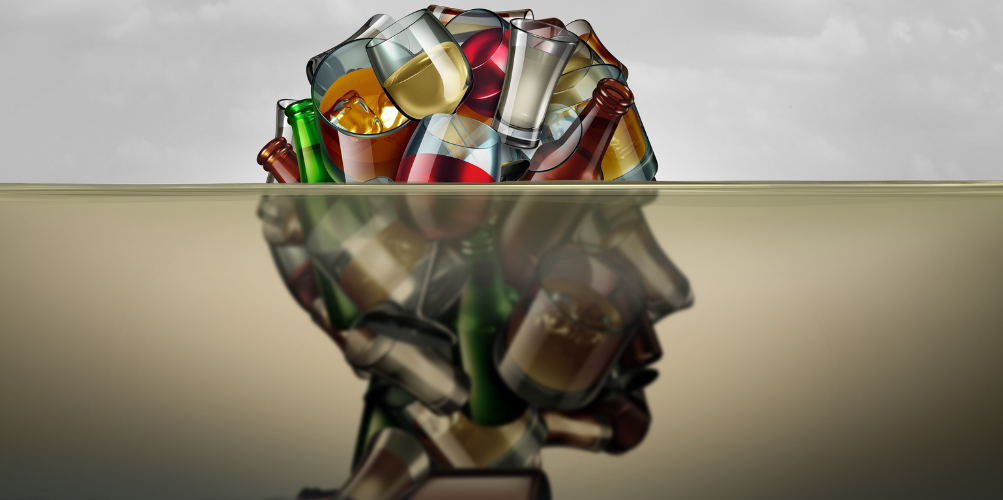How Addiction Affects the Entire Family
The common effects of alcohol on the body are well documented, but what about the seemingly more...

Alcohol addiction is a serious problem that can have a significant impact on your life. Let’s explore why alcohol is so addictive, and why it's so difficult to quit drinking once you've started.
There is not one singular cause of alcohol addiction. Researchers have always understood that alcoholism develops within the brain, but are discovering more and more about how deeply rooted alcoholism is affected by genetics, brain chemistry and sociological factors.

Mental health disorders such as anxiety and depression are also a driving factor of alcohol abuse, with around 20% of those suffering from anxiety also abusing alcohol.
Other sociological driving forces behind alcoholism include high levels of stress, peer pressure and self medication. But typically, these are the outcomes of a much bigger, more complex issue pertaining to why alcohol is addictive.
Alcohol consumption is associated with a number of negative consequences, one of which is a decreased level of dopamine in the brain.
Dopamine is a neurotransmitter that plays an important role in the regulation of mood and cognitive functions. It's also responsible for Reward System activation, motivation, and pleasure sensations.
Ethanol (the main ingredient in alcohol) causes the brain to produce high levels of dopamine. When we first consume alcohol, dopamine is produced, signalling to our brains that alcohol use is a reward. This is reinforced by continual production of dopamine.

Eventually however, alcohol addiction causes dopamine transporters and your brain's receptor sites to wear down. This inevitably decreases dopamine production, meaning that those suffering from alcohol addiction will fail to feel adequate levels of pleasure - but, the brain will still "remember" the reward that was attached to drinking, and signify the need to further drink.
GABA is a neurotransmitter that helps to reduce stress and anxiety by producing a feeling of relaxation. Alcohol consumption can increase the levels of GABA in the brain, sedating the brain. This is what many drinkers refer to as "taking the edge off.”
Long-term alcohol usage causes the brain to produce glutamate, an excitatory family neurotransmitter that acts as a counterbalance to GABA and encourages the brain to adapt to higher levels of GABA. The brain will continue to produce high quantities of GABA as a result of the glutamate rise, which is what leads to an alcohol tolerance.
Alcoholism is a complex disorder that can be influenced by many factors, but genetics may play a part.
Certain alcoholic inclinations can be inherited, but social and environmental factors also play a role in the development of an alcohol use disorder.
The National Institute of Alcohol Abuse and Alcoholism says that, “Genes are responsible for about half of the risk for AUD. Therefore, genes alone do not determine whether someone will develop AUD. Environmental factors, as well as gene and environment interactions, account for the remainder of the risk.
It can be really hard to quit drinking, even if you know that it's not good for your health. Alcohol is a powerful drug, and it can be incredibly difficult to break free from its grip. Quitting drinking is not a matter of willpower, and you are not weak if you are having a hard time quitting alcohol.
Here are a few key reasons why it’s so difficult to quit drinking alcohol.
When someone tries to quit drinking, it’s natural for them to experience uncomfortable and even dangerous withdrawal symptoms. These withdrawal symptoms can drive the person to return to alcohol in order to avoid the pain associated with withdrawal.
Every time you drink, your tolerance to alcohol increases. Over time, the brain works to maintain balance. It adjusts to the regular consumption of alcohol by reducing the amount of these brain chemicals released.
As a result, people are tempted to consume more alcohol in order to experience the same amount of intoxication they were accustomed to.

The higher your tolerance, the harder it is for your body to determine what is normal.You will need to drink more and more in order to feel a sense of normalcy.
Alcohol can temporarily ease anxiety, depression, PTSD, and other mental health disorders. However, in the long run, alcohol only makes mental health disorders worse, and it becomes a vicious cycle of drinking more in an attempt to feel better.
Alcohol is so socially accepted that it’s hard to forget about alcohol. Advertisements and events make alcohol seem like it will enable you to have more fun, and let loose.
It may be difficult to explain to people why you aren’t drinking, and you may fear what people will think.
Some helpful tips for quitting drinking include:
If you are struggling with an alcohol use disorder, the good thing is that there is hope. Your body has a remarkable ability to repair the damage that alcohol has caused.
In fact, in only 30 days alcohol-free, your liver will begin functioning properly, anxiety will decrease, and your sleep will improve.
Learn more about our addiction recovery programs, or speak to our addiction recovery specialists to further discuss treatment options.
The common effects of alcohol on the body are well documented, but what about the seemingly more...
Alcohol addiction is a serious issue that affects millions of people worldwide. It can lead to...
Is there a connection between being a workaholic and having an alcohol use disorder? There could...